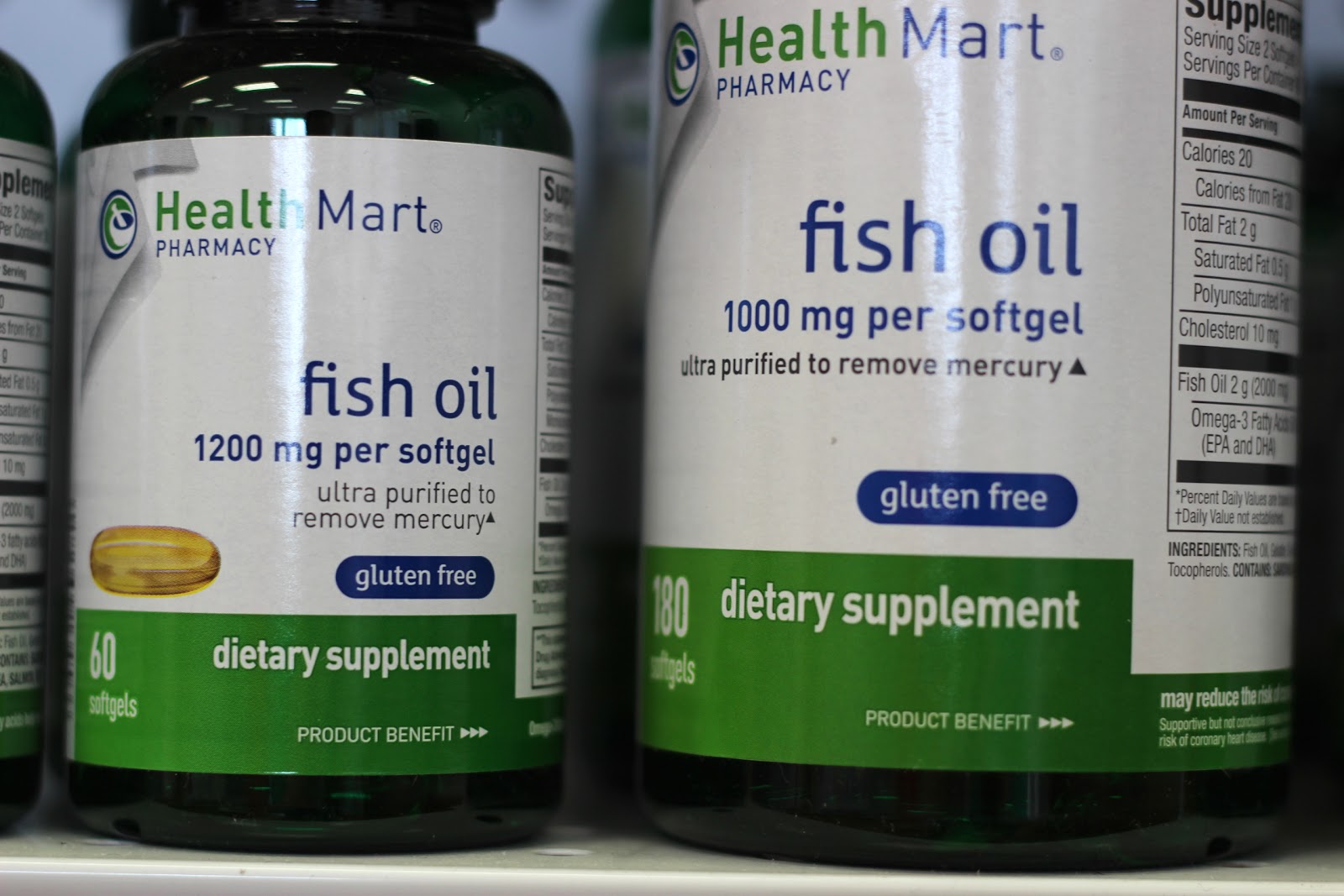In
addition to prescription medications, one of a pharmacists most
important jobs is to steer people to the right over the counter
vitamins and supplements. At times, this can be a difficult task
because there are so many different varieties to choose from. Fish
oil is one of the most commonly asked about products. Most people
have heard about the potential benefits of fish oil supplements, but
which specific product is the “best”? Here are the basics on fish
oil supplementation.
When people talk about fish oil supplements, they are really interested in the DHA and EPA omega-3 fatty acids. A person could get these from flax seed, walnuts, and of course fish but usually supplementing with a fish oil capsule is the less expensive and more practical solution. I did the math and fish oil supplementation is far less expensive than sushi supplementation (say that five times fast).
 |
| The most common fish oil is 1,000mg |
Fish
oil supplements have many potential benefits for people. People
concerned about heart health take them to help reduce blood pressure,
slow development of plaque in arteries, and overall reduction of
heart attack and stroke. Another potential benefit is eye health
and to help with macular degeneration. Benefits have also been seen
in asthma, diabetes, movement disorders, obesity, kidney disease,
psoriasis, and osteoporosis.
 |
| 40 year old Cod Liver Bottles |
There
are thousands of different non-prescription fish oil supplements from
which to choose. The one that will work best for you depends a lot
on personal preference. The standard fish oil capsule is 1,000mg. A
lot of companies also make 1,200mg. If you have difficulty
swallowing large pills, there are also smaller, lower strength
choices.
Besides
size, one of the common complaints about fish oil is the “fishy
aftertaste/burps”. Because of this, there are many enteric coated
products. This means that the capsules do not dissolve until further
along the digestive tract to prevent this. People also say that
keeping the capsules in the freezer can also help.
 |
| Krill Oil (red capsules) vs regular fish oil |
A
high tech version of fish oil is krill oil. Krill oil is attached to phospholipids that mimic the ones in our body, making it more easily
absorbed as compared to traditional fish oil. Because of this, a
person should not have the same fishy aftertaste or fishy burps.
Another advantage of the increased absorption is that the pills are
smaller. However, these benefits come at a price. The average bottle
of krill oil costs about three times as much as a fish oil product.
Still, they may be the perfect choice for some people.
 |
With
any vitamin, supplement, or prescription, there are dangers and
interactions that must be addressed. Be sure to talk to your
pharmacist or doctor before starting anything new.




